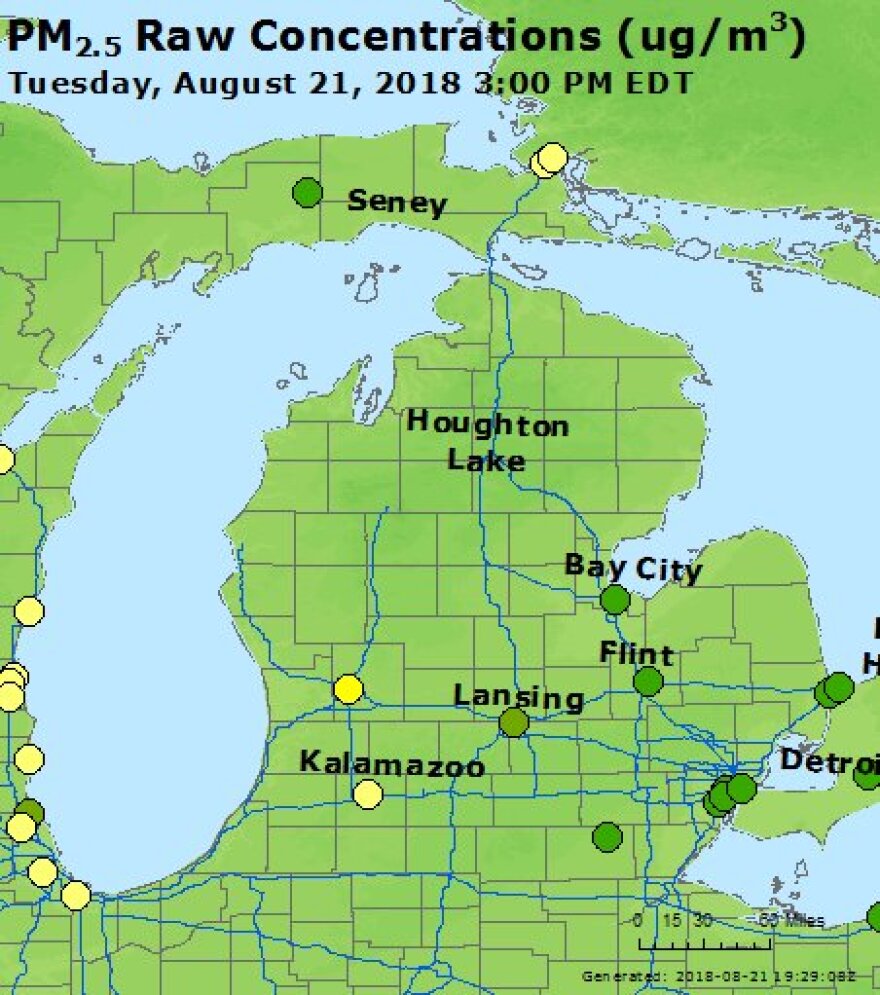The Michigan Department of Environmental Quality is reporting increased levels of fine particulate air pollution caused by smoke from the California wildfires.
Stephanie Hengesbach is a meteorologist with the Air Quality Division within the MDEQ. She says the levels of fine particles found in the air are higher than expected, given the time of year, regional weather conditions, and direction of the wind.
“Typically, when we have a northwest wind over our state, or really any type of northern wind, we pretty much are expecting good air quality,” she says. “But that really has not been the case over the past couple weeks, we believe due to the wildfires. They are to our west and the upper level wind flow has been from that direction.”
Fine particle levels are monitored throughout the state by the Air Quality Division. On Monday, the 24-hour averages ranged from 11.1 to 18.4 micrograms per cubic meter (?g/m³). On Monday, Dearborn experienced an isolated spike to 47.4 ?g/m³. The following day, Sault Ste. Marie reported a spike to 48.6 ?g/m³.
Dearborn's Beaumont Hospital reports they have not seen an increase in people coming to the emergency room with breathing issues.
Hengesbach says there are often spikes in the morning or on days with little wind because the atmosphere has not had time to mix up air particles yet. If the 24-hour average level surpasses 35.5 ?g/m³, the state would declare a Clean Air Action Day.
But whether a Clean Air Action Day is declared or not, Hengesbach says some people could still be affected by the increase in fine particulate pollution.
“When inhaled, it can get into the lungs and cause some aggravation, especially with people that are sensitive to increased pollutants,” she says. “For instance people with asthma or other breathing conditions, or people who have blood disease or high blood pressure. Children and older adults are often susceptible to high particulate levels and also really people of all ages who do any kind of heavy or physical activity outside or play a sport [outside].”
She advises people who may be sensitive to this pollution to keep an eye on the levels in the state.
As the smoke spreads eastward, the California wildfires are expected to continue burning at least until September.
“And it's not just a Michigan issue right now,” Hengesbach says. “It's really region wide, and really U.S. wide.”






